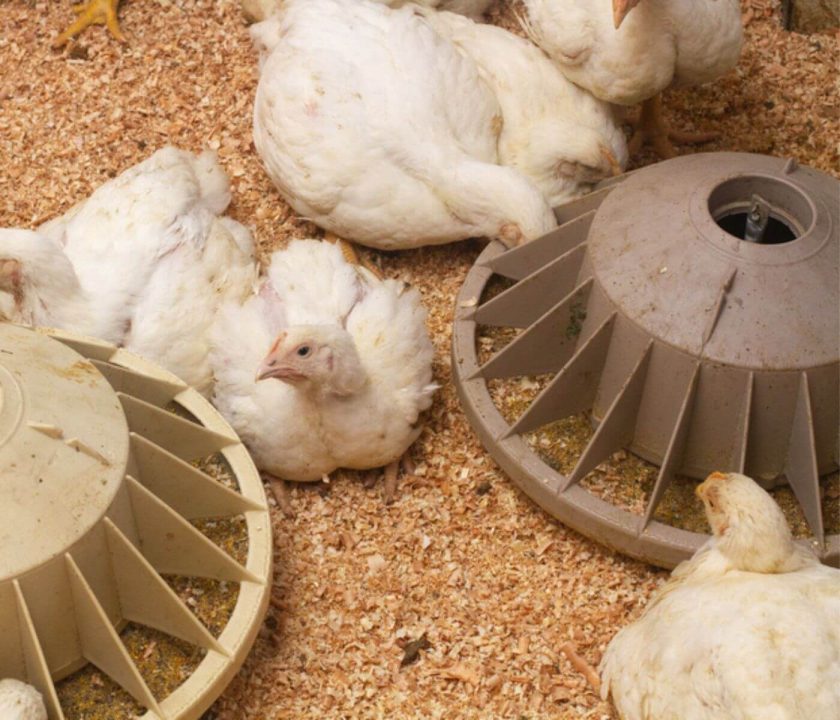Content available at: العربية (Arabic)
Betaine is a trimethylated derivative found in living organisms. It acts as an osmolyte to help maintain cellular water balance and as a methyl donor through methionine recycling. Increased water retention due to its osmotic effect increases cell volume, thus increasing:
- Anabolic activity
- Cell membrane integrity
- Overall performance of the bird
Its osmotic activity allows cellular adaptations to adverse osmotic environments observed in hot and humid climates. Vertebrates, including poultry, have a limited ability to synthesize betaine.
In plants, it is synthesized and accumulated for protection against stress caused by salt levels or temperature.
In poultry nutrition, it can contribute in improving carcass performance and composition, reducing bed moisture, and helping to overcome coccidiosis and stress.
Thermal stress
Thermal stress consists of exposing birds to temperatures that are higher than optimal. This causes numerous health problems, such as:
- Respiratory deficits
- Decreased feed intake
- Lower weight at marketing age.
Heat stress represents one of the most important factors with negative effects on poultry production. It also has negative effects on carcass properties, which results in lower meat quality.
The use of feed additives that have positive effects to help resist thermal stress represent the most significant solution for this problem
Betaine has other beneficial effects on mild heat stress. Most studies have shown slight positive effects; however, systematic results are scarce. Since betaine dosage and product possibilities are almost limitless, more research is still required on this subject.
Metabolism and functions
Betaine is absorbed in the jejunum of chickens in its purified form. Its absorption is faster than that of choline or methionine. The latter is associated with plasma lipoproteins, while
Keep up to date with our newsletters
Receive the magazine for free in digital version
REGISTRATION
ACCESS
YOUR ACCOUNT
LOGIN
Lost your password?

